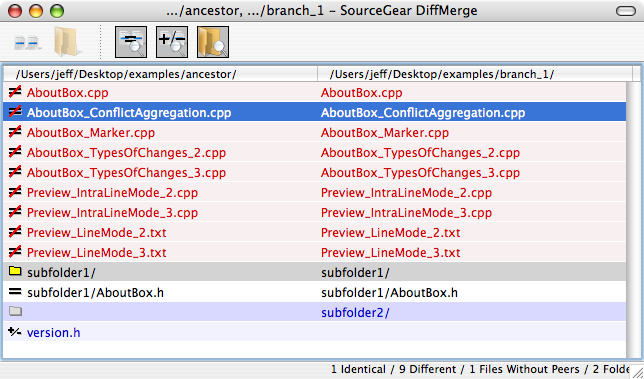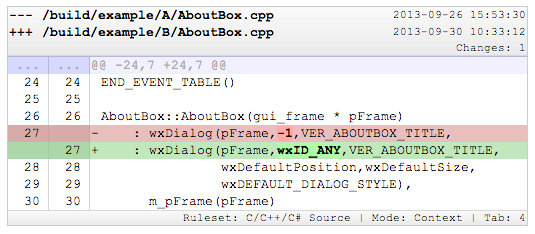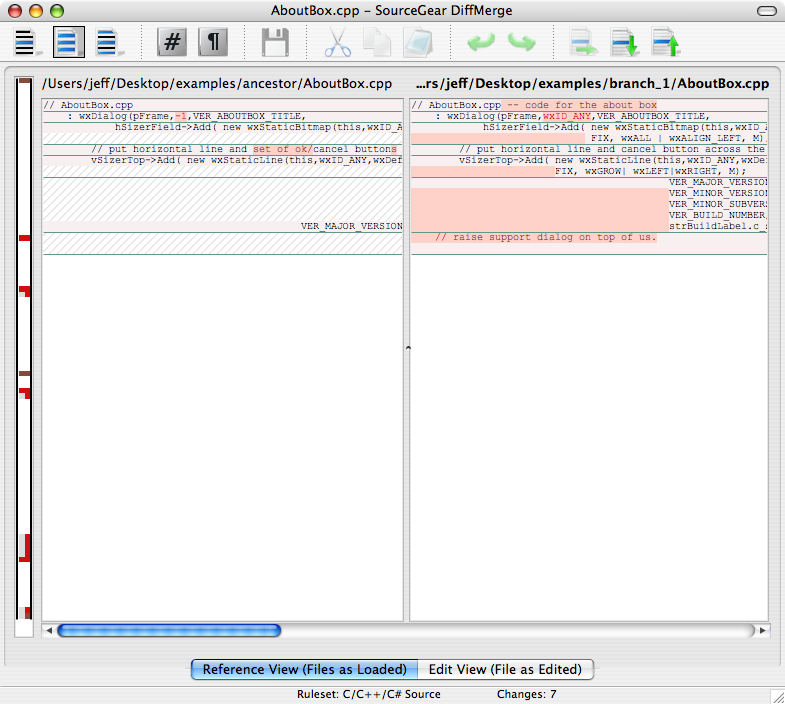
- #Unity sourcegear diffmerge install
- #Unity sourcegear diffmerge code
- #Unity sourcegear diffmerge plus
- #Unity sourcegear diffmerge windows
It's both a standalone tool and VS extension (which makes it especially handy). If you're finding this article helpful, consider our asset Dialogical on the Unity Asset store for your game dialogues. Should be a very solid tool if you like its ways. I also didn't like that it wastes space on the legend - when you figure it out once you've got it. I did try it, but couldn't get into its way of doing things fully. SourceGear DiffMerge: Similar to all the contenders above, I've found the interface a bit archaic too. It's style is like kdiff3, though I've read it's better if you're into it.
#Unity sourcegear diffmerge install
TortoiseMerge: Part of TortoiseSVN you could download it standalone in the past from SourceForge, but it seems now you have to install full TortoiseSVN which I did not want.
#Unity sourcegear diffmerge plus
On the plus side, it has a nice section for ignoring similarities. Additionally, I've found the lines selection style to be tiresome.
#Unity sourcegear diffmerge windows
It's good: you can copy up/down from right to left and vice versa (what I mean by immediate), but I haven't found a way to do it in single click under Windows like under Linux. Meld: Popular in FOSS circles, not so much under windows. Kdiff3: Quite popular but I never could get into the 3 + (1 below) interface (and it is not 'immediate') more importantly the interface styling could be liked only by the authors. This, of course is only for comparison (not merging), as WinMerge does not support standard 3-column configuration for merging which makes it a misnomer and unsupported by SourceTree as you'll find on their forum. WinMerge: I used it in the past, it's fairly nice but the interface is not "immediate" - which means you have to use the toolbar instead of arrows to the side of the code. The other question that may arise is: why CodeCompare for Merging actions? Take a look at the competition: This will be further addressed in a future article.
#Unity sourcegear diffmerge code
On a more general note, some Game Development teams resolve the conflicting general need to both have distributed versioning of code and file locking for binary files by making a Frankenstein - using both in a complicated setup. As of writing this (Unity 5.1 is active) this has not been resolved to the satisfactory level.

This makes a CVCS pretty much useless, and yes: there are scripts out there that help with the problem (locked file becomes grayed out in the hierarchy) but those are not real solutions - nothing about those is low-level industry-strength guarantee that taking of the locked file won't happen.

Unfortunately Unity does not honor the flag: it allows editing of the file either way. They work by setting a specific file flag (on a file system level) that is 'Read-only' to denote the lock status. I would have chosen CVCS if it was not for one thing: they don't really work with Unity. As a generalization, DVCSs are better for code collaboration and CVCSs are better for binary and asset collaboration. DVCSs presume the work will be merged as text files (code) and don't even have the option to lock the file - it's not in their nature. These are, in theory, much better for Artists, because they can lock individual files for editing, thus preventing other team members to "step on each other's toes" by editing the same files and doing redundant work. On the other hand there are Centralized VCSs like Perforce or SVN.

Imagine you have a job to complete and 2 engineers to do it: one engineer that can complete a job within 30 hours, but he knows much more and is more popular (his name starts with G) and you have another engineer which can complete the same job within 5 hrs without much fuss (and his name starts with M). I also really liked how Mercurial did things in general, so Git vs Mercurial choice was very clear for me. I can echo the general attitude that you can learn Hg syntax within a day or two, while with Git I was constantly surprised as soon as I had to 'wander off the beaten path'. Having learned a bit of Git's peculiar syntax, I was curious to see how Mercurial (Hg) compares to it. Git has its drawbacks and complications, and having worked with EGit (extension for Eclipse that provides Git functionality) I found it to be very problematic.

First, a little intro about VCS': why Mercurial for Game Development? In the past I have worked with another Distributed VCS you might have heard about - Git.


 0 kommentar(er)
0 kommentar(er)
